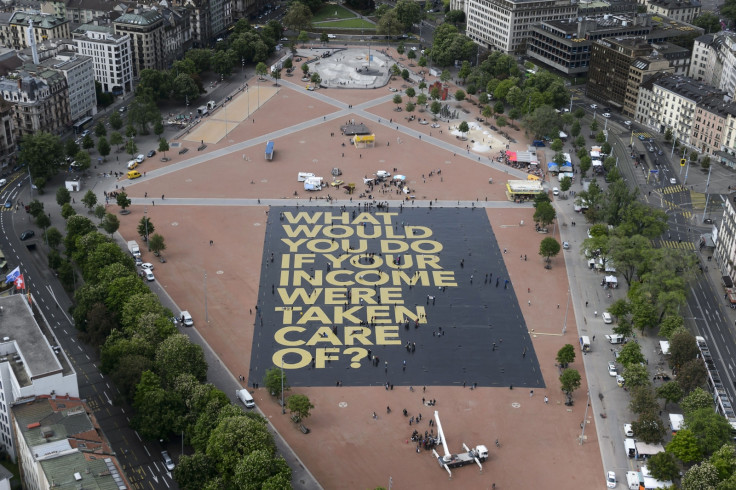Swiss voters reject plans to introduce Universal Basic Income, projections suggest

Projections released from the Universal Basic Income (UBI) referendum in Switzerland suggest that voters have rejected the proposals to provide its citizens a monthly income of CHF2,500 (£1,755, $2,560), regardless of their employment status.
According to a projection posted online by the GFS market research firm for Swiss TV, reported by the BBC, more than 75% of voters oppose the plan. Supporters of the idea – including a campaigning group called Basic Income Switzerland (BIS) – claimed that since work was increasingly automated and fewer jobs are available, the basic wage would help support the population. The UBI would also benefit people who carry out unpaid work.
"In Switzerland over 50% of total work that is done is unpaid. It's care work, it's at home, it's in different communities, so that work would be more valued with a basic income," asserted Che Wagner from BIS before the polls opened. Many voters, it seems, disagree.
As previously reported, Swiss politicians were also largely opposed to the proposal, which did not have the support of any of Switzerland's political parties. However, because a poll gained over 100,000 signatures by the public it was put to a public vote as required by Swiss law.
Luzi Stamm, a member of parliament for the right-wing Swiss People's Party, said: "Theoretically if Switzerland were an island, the answer is yes. But with open borders, it's a total impossibility, especially for Switzerland, with a high living standard."
He continued: "If you would offer every individual a Swiss amount of money, you would have billions of people who would try to move into Switzerland."
The basic income was one of five issues on the Swiss ballot on Sunday 5 June. Switzerland is the first country to hold such a vote and, on the day, it was one of five issues on the ballot with others involving the country's asylum process and two other "financial initiatives".
While the campaign was characterised by flamboyant demonstrations – including campaigners dressing up as robots and promising to 'free' humans from daily working life – Switzerland is not the only country to be considering the idea. UBI is due to be tested in other European countries, including Finland and the Netherlands. In Finland, 8,000 people on low incomes will be given a UBI, in place of state benefits, in a trial scheme.
© Copyright IBTimes 2025. All rights reserved.






















